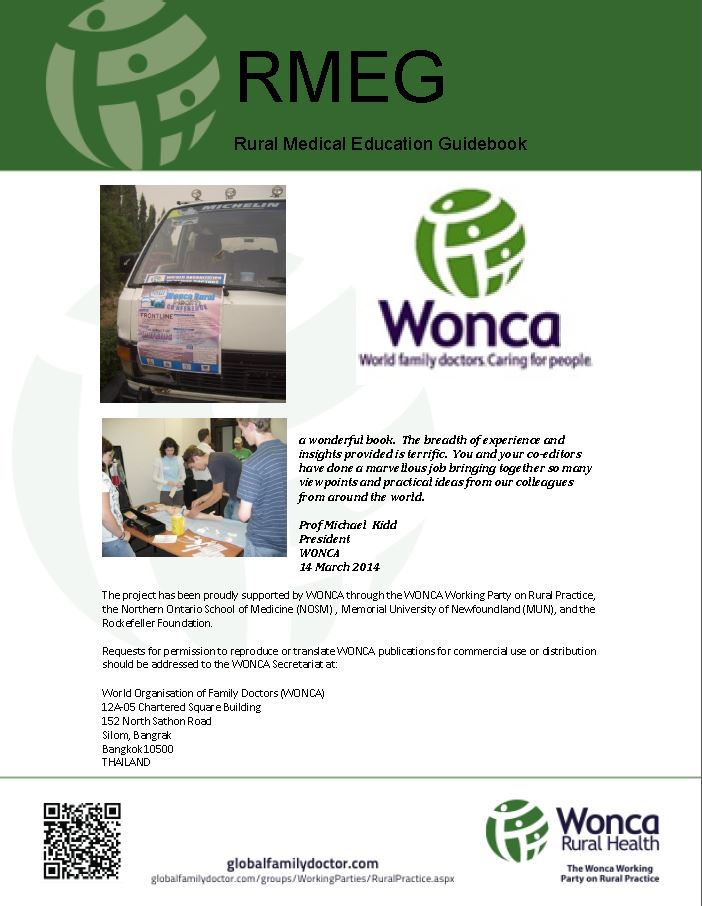Rural and Remote Health reviews Rural Medical Education Guidebook.
Rural Medical Education Guidebook
WONCA launched its
Rural Medical Education Guidebook (RMEG) at the 12th WONCA World Rural Health Conference, Gramado, Brazil, in April 2014. The project has been proudly supported by WONCA through the WONCA Working Party on Rural Practice, the Northern Ontario School of Medicine, Memorial University of Newfoundland (MUN), and the Rockefeller Foundation.
The RMEG Consisting of 71 chapters written by 74 authors, it represents a unique collaboration, with contributions from every continent. It is intended to be a free resource for doctors, educators and others wanting to obtain practical ideas on implementing aspects of rural medical education and to learn from the experience of colleagues in different contexts.
This week,
Rural and Remote Health the international electronic journal of Rural and Remote Health research education and practice policy has published a review by Dr John Wootton of the
WONCA Rural Medical Education Guidebook (RMEG).
John Wootton, MD, CM, from Shawville, Quebec, Canada, in his review writes:
"
... It is an encyclopaedia, a smorgasbord, a feast of insights and information about rural practice, rural education, rural life, and rural society, writ large. Although purporting (by its title) to be primarily a tool for rural educators and about rural education, it is in fact much more than this. Not only a text for preceptors and programs, but also a compendium of what we know and where we would like to go. Clearly education is where it all starts, but rural community is where it ends, and there is no shortage of stories that span this spectrum.
The editors have identified five themes, into which they have slotted the essays in logical clusters. Readers are free of course to follow the order of the essays as they are presented, but they may also dip in at will where they recognize a name or a theme with particular resonance. Either strategy invariably yields a pearl: from an historical description of surgery in remote Newfoundland, to an inside look at the challenges faced by women in rural practice, both written by those who have ‘been there, done that’."'
Dr Wootton continues
"The ‘elephant in the room’ is the question: has this intimate knowledge of the history, dynamics, and social structures underlying the inequities in distribution of health and healthcare to rural populations begun to improve the situation? For surely this is the fundamental reason for this effort, and for the creation of this tool. Undoubtedly in some places things have improved. Equally as sure is the fact that in many it has not. This collection of wisdom and insight and energy must therefore not be a static thing, but rather a process which invites new contributions as new practitioners bring their experience to bear on the problem."
If you have not yet looked at the WONCA
Rural Medical Education Guidebook now is the time.
Link to full text of review article
Citation: Wootton J. Rural Medical Education Guidebook. Rural and Remote Health 14: 3277. (Online) 2014. Available:
http://www.rrh.org.au